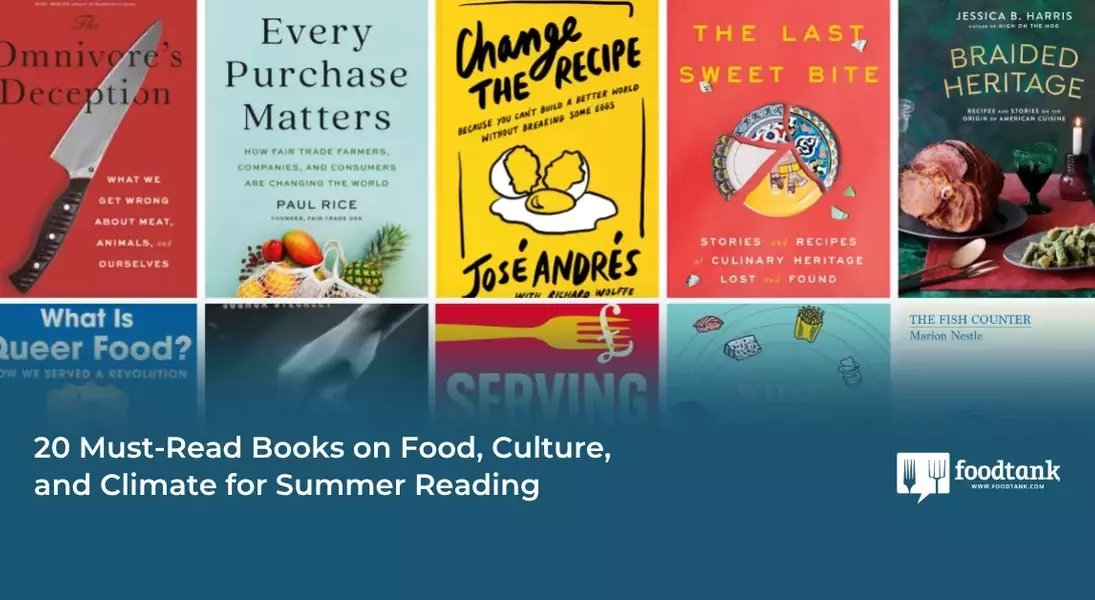
This summer, dive into a collection of 20 thought-provoking books that delve into the intricate relationship between food, culture, and sustainability. From historical explorations of staple foods to guides for creating sustainable gardens, these works provide fresh perspectives on global food systems and their impact on the planet. Authors like Jessica B. Harris and José Andrés offer insights into culinary heritage and community-building through food. Meanwhile, other titles focus on fair trade practices, regenerative agriculture, and the ethical dilemmas surrounding animal agriculture. Each book encourages readers to rethink their approach to food, emphasizing its role in shaping both personal lives and the broader world.
Among the standout works is "Braided Heritage" by Dr. Jessica B. Harris, which traces how Indigenous, European, and African cuisines merged to form America's unique food landscape. Another notable title, "Change the Recipe" by José Andrés, reflects on his decades-long experience cooking globally and the lessons learned about fostering community and dignity through food. These books, along with others focusing on fair trade, food security, and environmental stewardship, challenge readers to consider the profound implications of their dietary choices.
In "Green Gold," Sarah Allaback and Monique F. Parsons explore the surprising history of avocados, detailing their journey from humble origins to becoming a global phenomenon. Similarly, Robert Hellyer’s "Green with Milk and Sugar" investigates the influence of Japanese-American relations on tea traditions. For gardening enthusiasts, Jamie Walton’s "Nettles and Petals" and Christian Douglas’ "The Food Forward Garden" provide comprehensive guides to cultivating functional and aesthetically pleasing green spaces.
Other works emphasize the importance of sustainable agricultural practices. Kelsey Timmerman’s "Regenerating Earth" recounts his travels across continents, highlighting indigenous methods of farming that could transform agriculture into a climate solution rather than a crisis contributor. Meanwhile, Rawia Bishara’s "Tanoreen" celebrates Palestinian home cooking, blending traditional recipes with contemporary influences.
These diverse publications collectively underscore the interconnectedness of food production, consumption patterns, and ecological health. By examining various aspects of food culture—from its historical roots to modern challenges—they inspire readers to adopt more mindful approaches toward eating and living sustainably.
As the summer progresses, these literary selections promise not only enlightenment but also actionable insights for anyone interested in reimagining food systems. They serve as catalysts for change, encouraging thoughtful reflection on how individual actions can contribute to a healthier planet and society. Through engaging narratives and expert analyses, each book offers valuable tools for navigating today's complex food landscape while honoring its rich cultural heritage.
